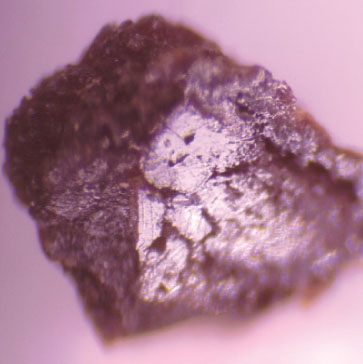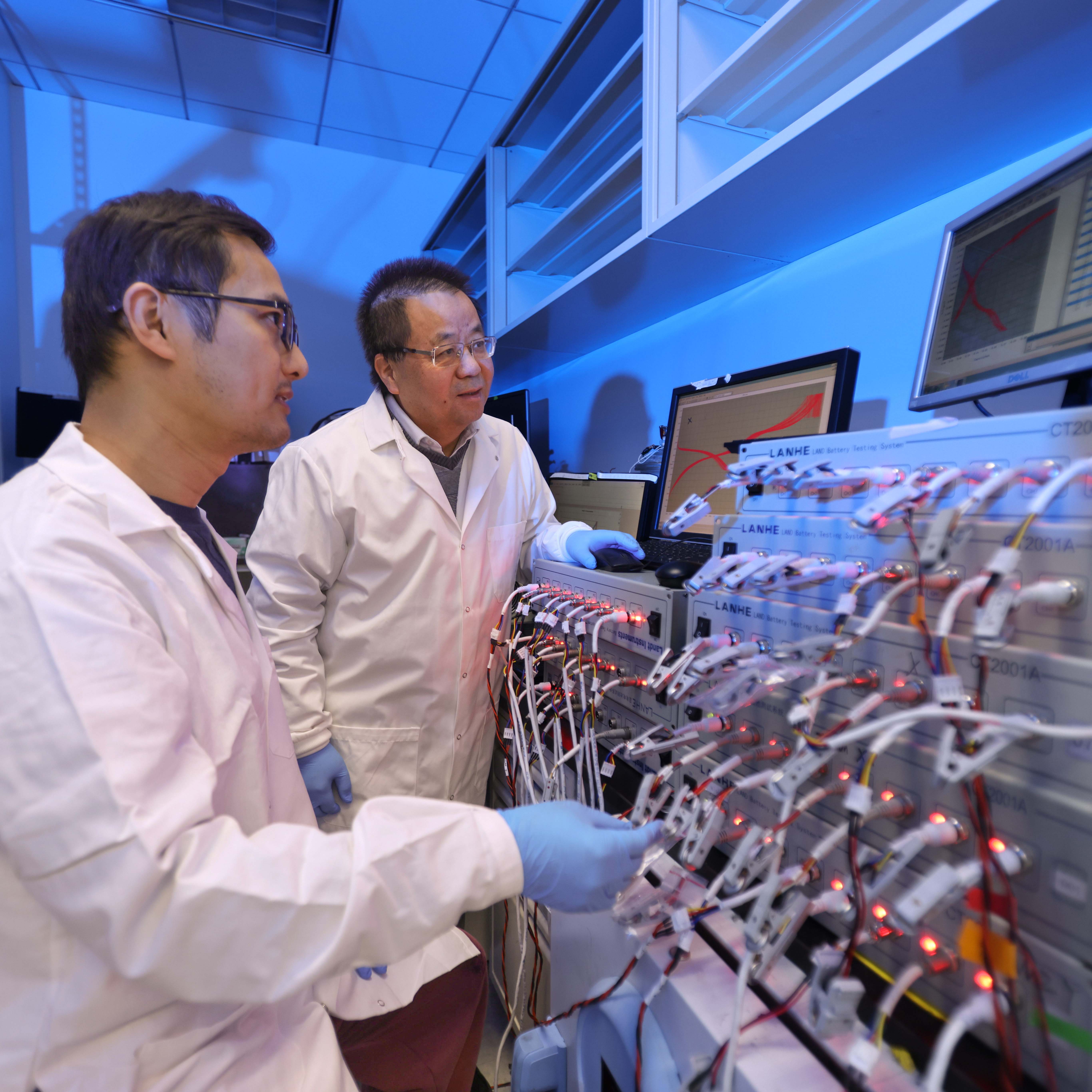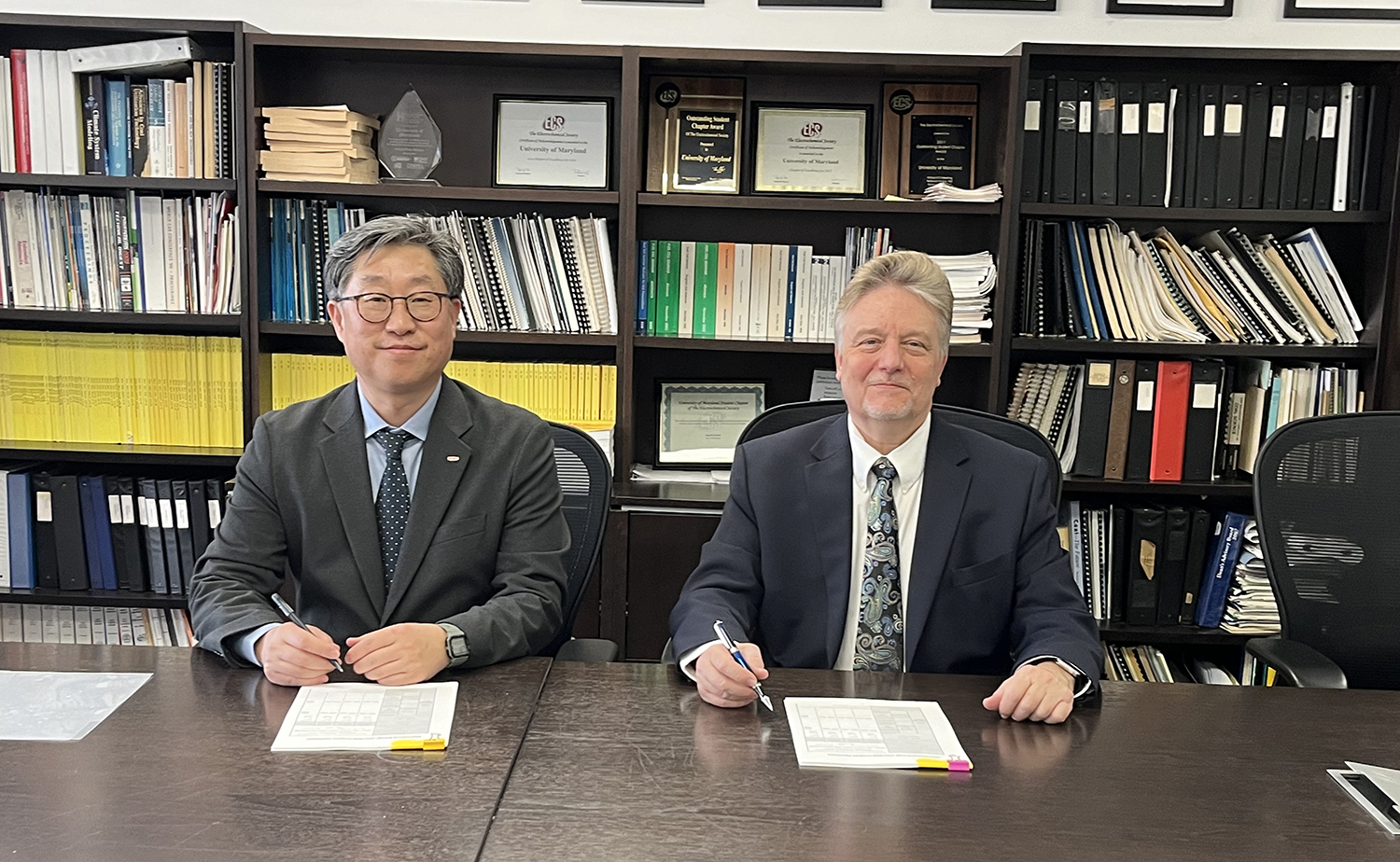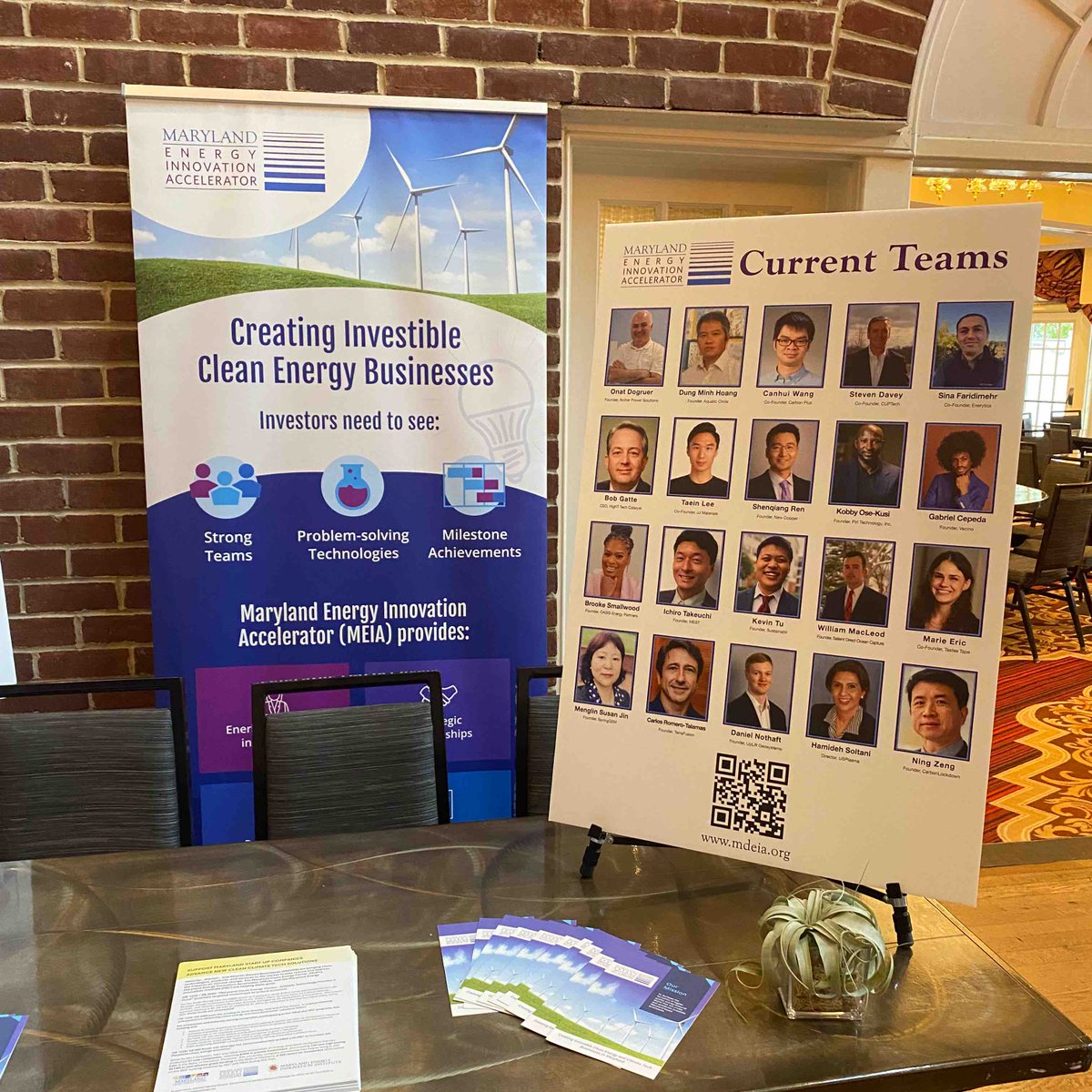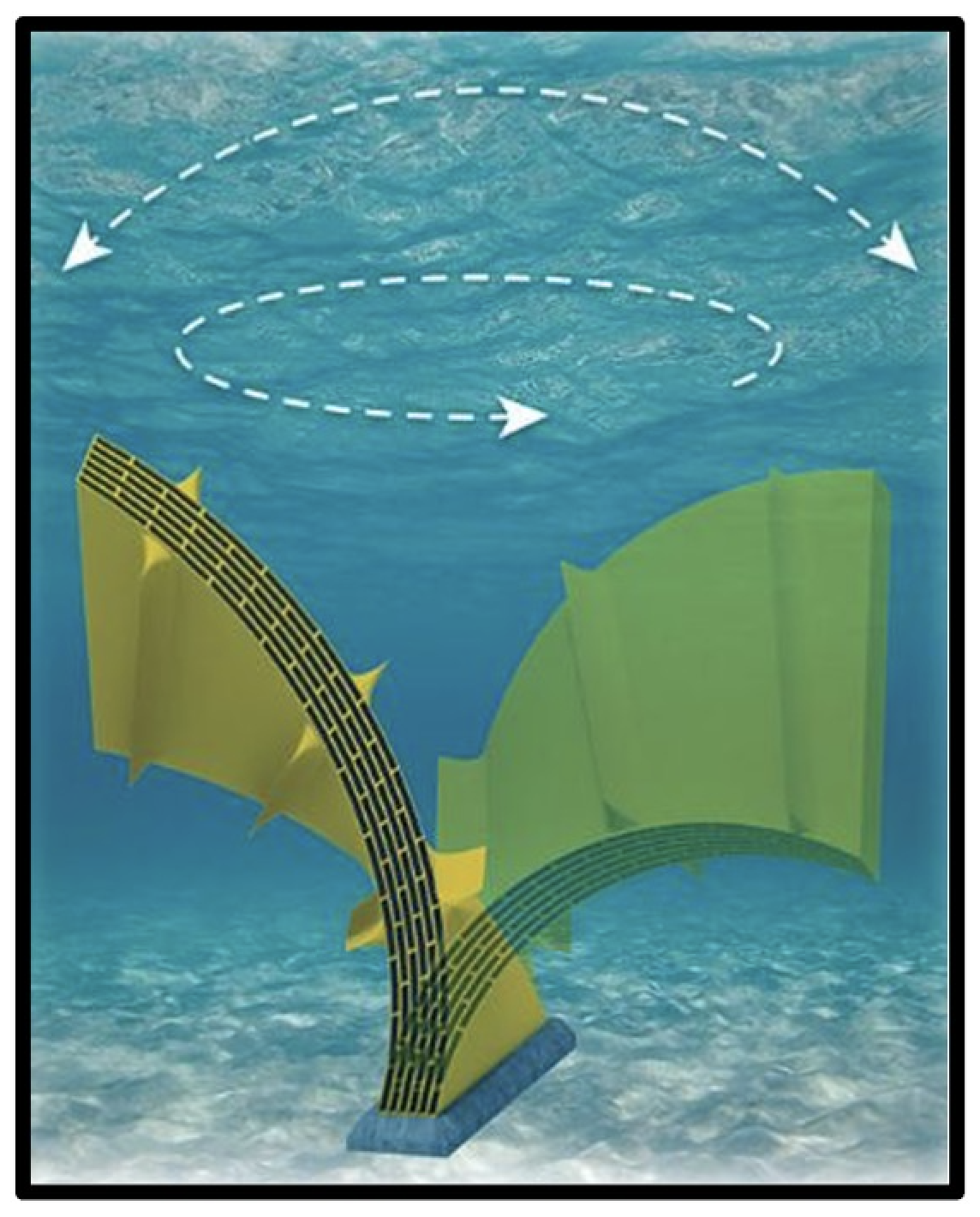News Story
Fluorine "crust" makes powerful, safe battery
Electric vehicles’ batteries would be improved if they could hold more charge, providing a longer drive without re-charging. UMD professor Chunsheng Wang of the Department of Chemistry and Biomolecular Engineering and his team created an high energy-dense solid state battery that can effectively suppress Li dendrite growth.
Wang and his team, including co-first authors Xiulin Fan and Xiao Ji, knew that lithium metal as the battery’s anode would hold a lot of charge. However, such anodes cannot be used in conventional fluid carbonate electrolytes, which are highly flammable. To get the high capacity without the potential for safety issues, the team mated lithium metal with a solid state electrolyte.
With the addition of fluorine, they were able to form a “crust” between the charge-carrying electrolyte and the Li anodes. This prevented Li dendrite from growing into the battery, the team found. This is particularly helpful because solid state electrolytes, though safer, are more vulnerable to developing Li dendrite. They reported their research in the journal Science Advances on December 21.
The “crust” (known to scientists as a “solid-electrolyte interface”) protected the solid state electrolyte from forming Li dendrite and produced a battery with record high current density (2 mA per square centimeter , twice the best reported current density for the Li metal solid state batteries. It was also more efficient in keeping the stored charge available and not losing it through Li dendrite formation (98% efficiency with fluorine, compared to 88% efficiency without.)
The new battery is a small test device, not yet scaled up to be a vehicle battery. However, the research work provided an effective way to manufacture solid-state Li metal batteries at high rate and long cycle. Moreover, because of the intrinsic safety and the extremely wide operation temperature range of the solid state electrolyte, it is believed that the developed batteries could be operational at extreme circumstances with high energy density. The reported principle of Li dendrite suppression in solid state electrolytes will accelerate the commercialization of solid state batteries. The development of high energy and safe Li batteries is one of focus for CREB, a UMD-ARL joint battery center for research in extreme batteries.
Fluorinated solid electrolyte interphase enables highly reversible solid-state Li metal battery
Fan et al., Sci. Adv. 2018;4:eaau9245 21 December 2018
Published December 21, 2018
